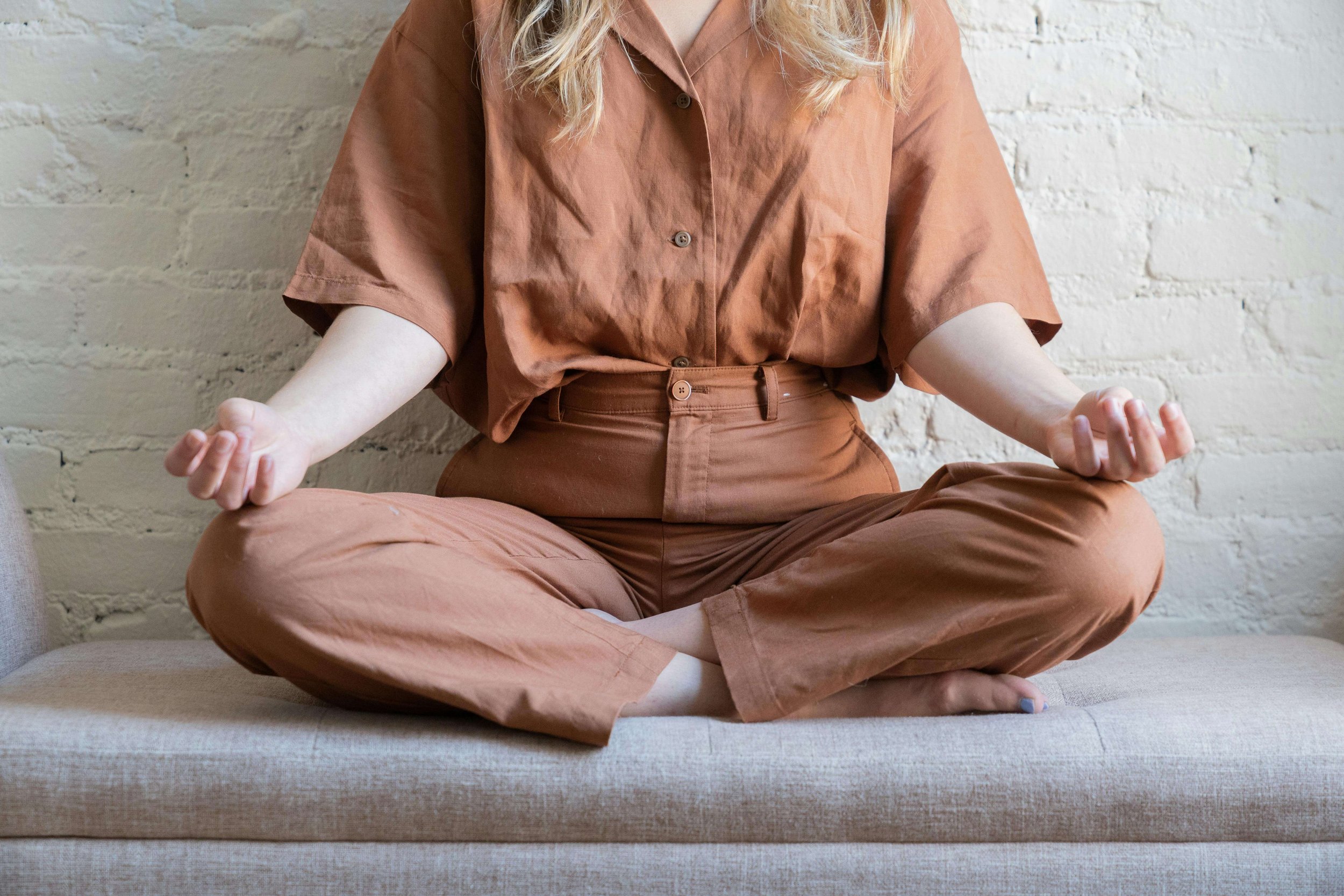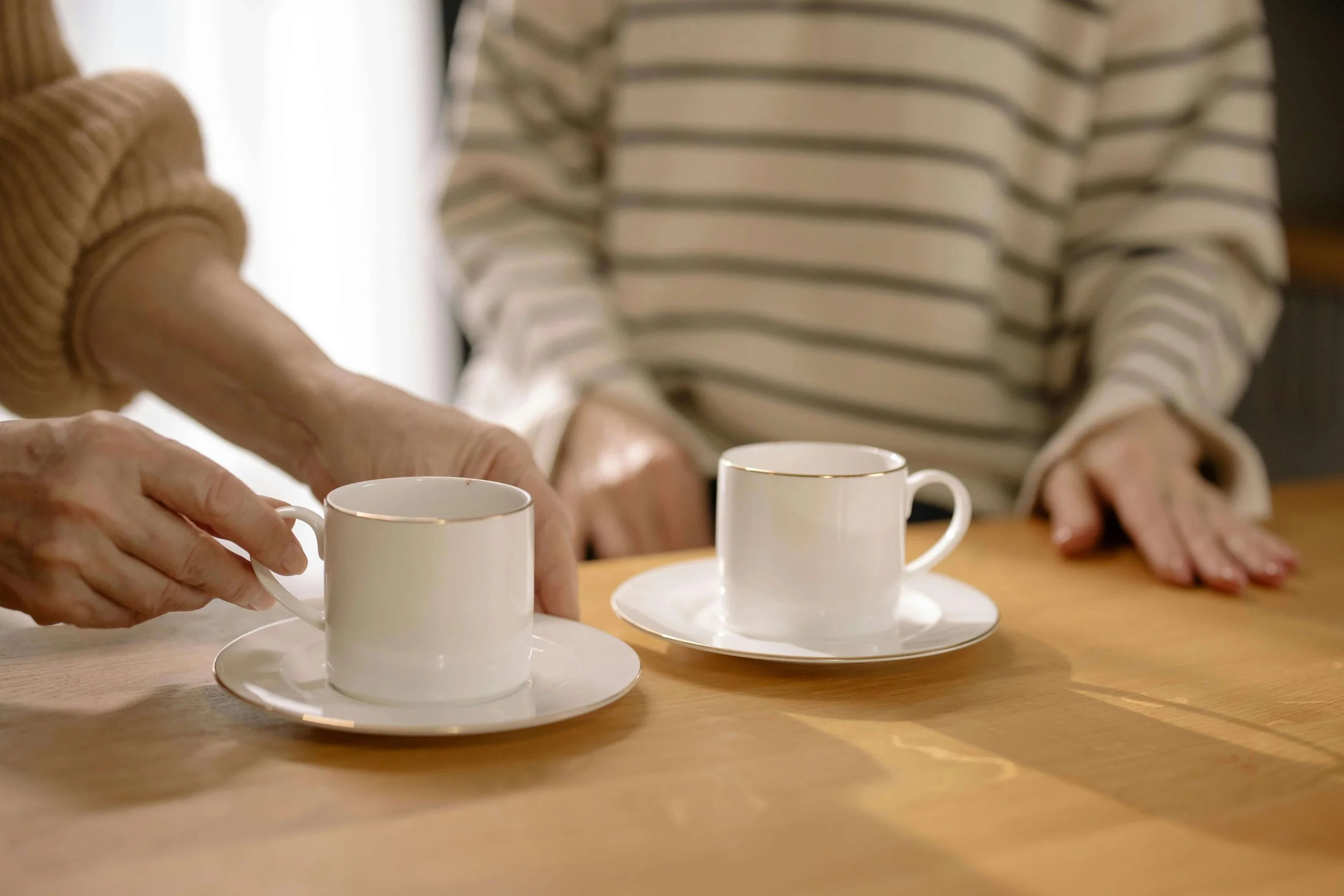Practical Mindfulness To Live Well With Chronic Illness
A how-to guide on quieting the chaos of life with chronic illness.
To state the obvious, life with chronic illness can be a bit daunting. Between managing often unpredictable symptoms, navigating treatment plans, and trying to keep the rest of your life on track, it’s easy to feel overwhelmed. Sound familiar?
One way to quiet the chaos is through what I call Practical Mindfulness. This isn’t the stereotypical image of sitting cross-legged on a mountaintop in serene meditation. Let’s be honest, when you’re feeling your worst, that kind of imagery might feel more infuriating than inspiring. Instead, Practical Mindfulness is about cultivating awareness.
It’s a simple, grounded approach to understanding what’s happening within your body, recognizing your symptoms, and clarifying what you truly need or hope for.
Practical Mindfulness is about tuning into your mind/body in a way that feels doable—even on your toughest days. It’s not about perfection; it’s about awareness, clarity, and taking small steps toward feeling more grounded.
In this post, we’ll explore how to use this approach to cut through the noise of chronic illness and create a little more space for self-understanding, self-compassion, and ease in your day-to-day life.
What Is Practical Mindfulness?
Practical mindfulness is an accessible, no-pressure approach to mindfulness that’s designed to fit right into your daily life, especially when you're managing the unpredictable nature of chronic illness. At its core, it’s about tuning into the messages your mind and body are sending you without judgment and using that information to make choices that support your health and well-being.
Practical mindfulness doesn’t ask you to meditate for hours or master a complex practice. Instead, it invites you to simply notice what’s happening with you on any given day. For example:
Observing symptom changes without overanalyzing or self-blaming.
Recognizing when you need to adjust your expectations or plans based on how you're feeling.
Identifying moments where you may need to advocate for yourself—whether with a healthcare provider, employer, or in your personal relationships.
It’s not about ignoring or minimizing your experiences. It’s about being honest with yourself about how you feel and using that awareness to honor your needs.
Why Is Practical Mindfulness Important?
When symptoms are at their worst, slowing down might feel impossible. But this is exactly when mindfulness can help the most—not as a cure, but as a tool to reconnect with what you need. By leaning into these moments of awareness, you can align your everyday actions with what supports your health today.
Practical mindfulness can help you:
Find clarity on your physical and emotional needs.
Make empowered choices that prioritize your well-being.
Adapt and adjust to what your body is asking for, whether that means rest, pacing, or reaching out for support.
Ways To Engage In Practical Mindfulness
Practical mindfulness involves paying attention to your physical and emotional state without judgment, making observations, and using those insights to care for yourself effectively. Here's how to get started:
Daily self check-ins
Living with a chronic illness means every day can feel different or the days can feel so similar that it can be hard to notice slow shifts in your life and health. Taking stock of how you feel on a daily basis can help you notice patterns, track symptoms, and identify changes over time.
Here's how you can make daily check-ins work for you:
Journaling or Tracking Apps: Use a journal, a calendar, journal or a symptom tracker to log how you're feeling each day.
Chronically Well Tracking & Journaling Kit: A digital/printable kit that prompts you to check-in with yourself and notice patterns in the short and long-term. (Find it HERE).
Document Patterns: Note changes in your symptoms, environmental triggers, or new factors affecting your health.
By tracking your your symptoms and your feelings consistently, you can gain insights into flare-ups or cycles, empowering you to anticipate challenges and make adjustments to your routine. Want to dig deeper into the benefits of symptom tracking? Check out this blog post on using symptom cycles as a powerful tool.
Midday Mind/BODY CheckPoints
Do you often push through symptoms or feel detached from your body during stressful situations? Incorporating midday mindfulness breaks can bring you back into balance. Here's how:
Pause and Scan: Take a moment to scan your body. Do you feel tense, tired, or sore? Notice any stressors or triggers that might have arisen during the day.
Use Your Breath: Breathing exercises can help calm your nervous system and heighten your awareness of your current state.
Adapt as Needed: If you realize you're nearing your limit, pause. Adjust your schedule, lighten your load, or seek support if necessary.
These checkpoints offer an opportunity to acknowledge your needs and take action, whether that means resting, reporting new or worsened symptoms to your healthcare provider, or taking other relevant action. You don’t have to push through—your well-being matters. Curious about owning your role as the expert of your body? Read my blog post on Embracing Your Inner Expert To Live Chronically Well.
judging less, observing more
It's common to feel frustration, guilt, or self-criticism when symptoms flare up. But mindfulness invites you to replace judgment with observation. Here's how:
Acknowledge Without Blame: Feeling fatigued or unwell is not your fault. Stop punishing yourself for what’s out of your control.
Look for the Data: Disappointing setbacks, such as treatments not working or certain actions worsening your symptoms, aren’t failures—they’re information. Think of these observations as valuable clues toward figuring out what works for you.
By practicing self-compassion, you can approach your condition with kindness and patience, recognizing that you are doing your best. Being candid with yourself about how you are feeling can really help you to notice what is really going on, and potentially what you can do about it. Want to explore how to flip the script on self-criticism? Check out this blog post on self-compassion and living shame-free.
awareness as a path to self-advocacy
Mindfulness doesn’t stop at observation—it’s a catalyst for action. By becoming more attuned to your symptoms and triggers, you create a foundation for self-advocacy. Here's how:
Healthcare Improvements: Use your tracked data to have empowered, informed discussions with your healthcare providers. Advocate for personalized treatments that suit your unique needs.
Life Adjustments: Adjust your environment or routines to better support your health, whether that’s delegating tasks, simplifying responsibilities, or creating a more realistic daily schedule.
Wellness Habits: Mindfulness can identify opportunities to implement small, sustainable habits that support your body and mind as you are today.
Your observations are more than just notes—they’re tools to advocate for better care and a more supportive lifestyle. Learn more about advocating for yourself effectively in these blog posts on self-advocacy in daily life and in the healthcare system.
An easy way to Practical Mindfulness…
Is by using the Chronically WeLl Tracking & Journaling Kit. Or, if you work with me in my THRIVE program you have access to daily check-ins in my app.
Honoring your needs, one step at a time.
Living with a chronic illness isn’t easy—there’s no sugarcoating that. But Practical Mindfulness offers a grounded, compassionate way to cut through the overwhelm and reconnect with what you truly need, both physically and emotionally. It’s not about doing something perfectly or adding one more task to your already-full plate. It’s about small, meaningful moments of awareness and care that can create space for greater clarity, self-compassion, and ease.
By tuning into your body and mind—judging less and noticing more—you can start to make decisions that honor your well-being in both the short and long term. Whether that’s taking a midday rest, scaling back a commitment, or simply recognizing that you deserve more support, these small steps add up to a bigger sense of balance.
If you’re ready to take the first step toward living Chronically Well, I’d love to support you. For daily check-ins made simple, personal, and empowering, explore how my THRIVE program can work for you. Together, we can create a practice that meets you exactly where you are. Or, if you are interested in a more DIY method, definitely check out my Chronically Well Tracking & Journaling Kit.
Because you deserve clarity, compassion, and a bit more ease - especially when chronic illness feels overwhelming.
What small step can you take today to add a little Practical Mindfulness into your life with chronic illness?
Does this resonate?Please share this post with friends! Click the menu on the right to share on social media.





